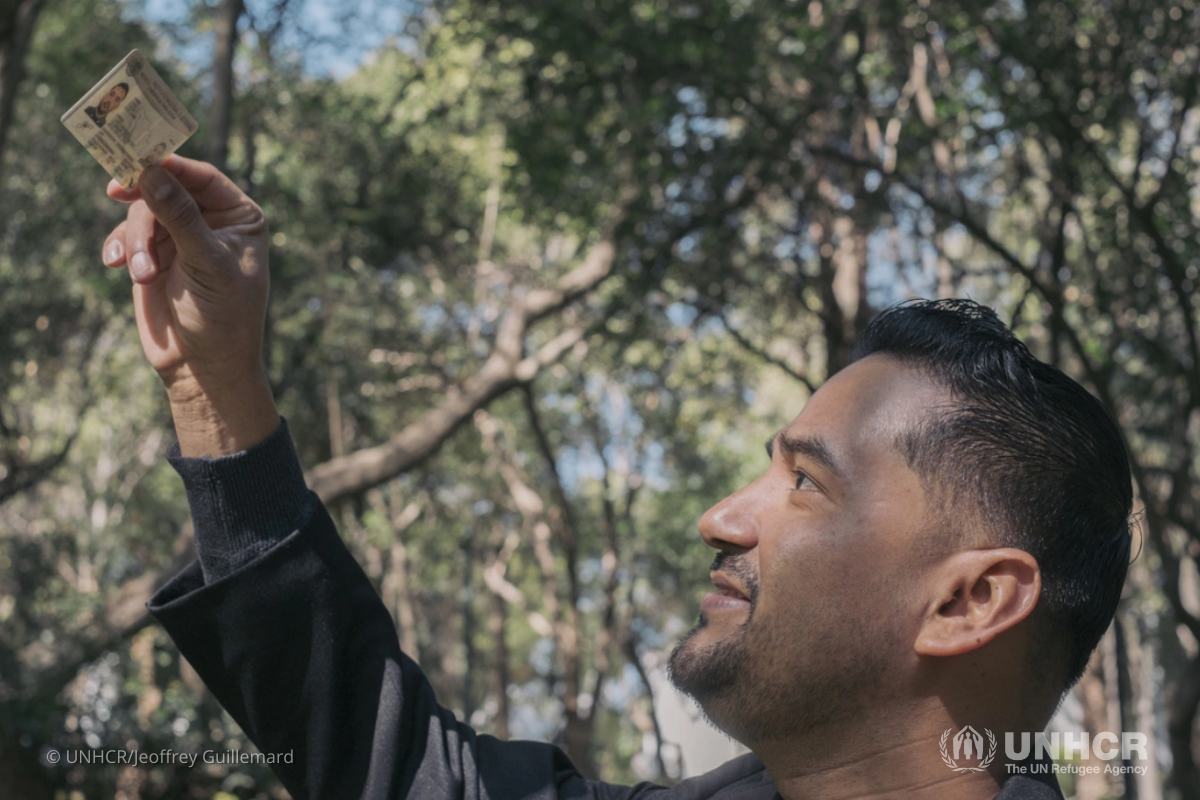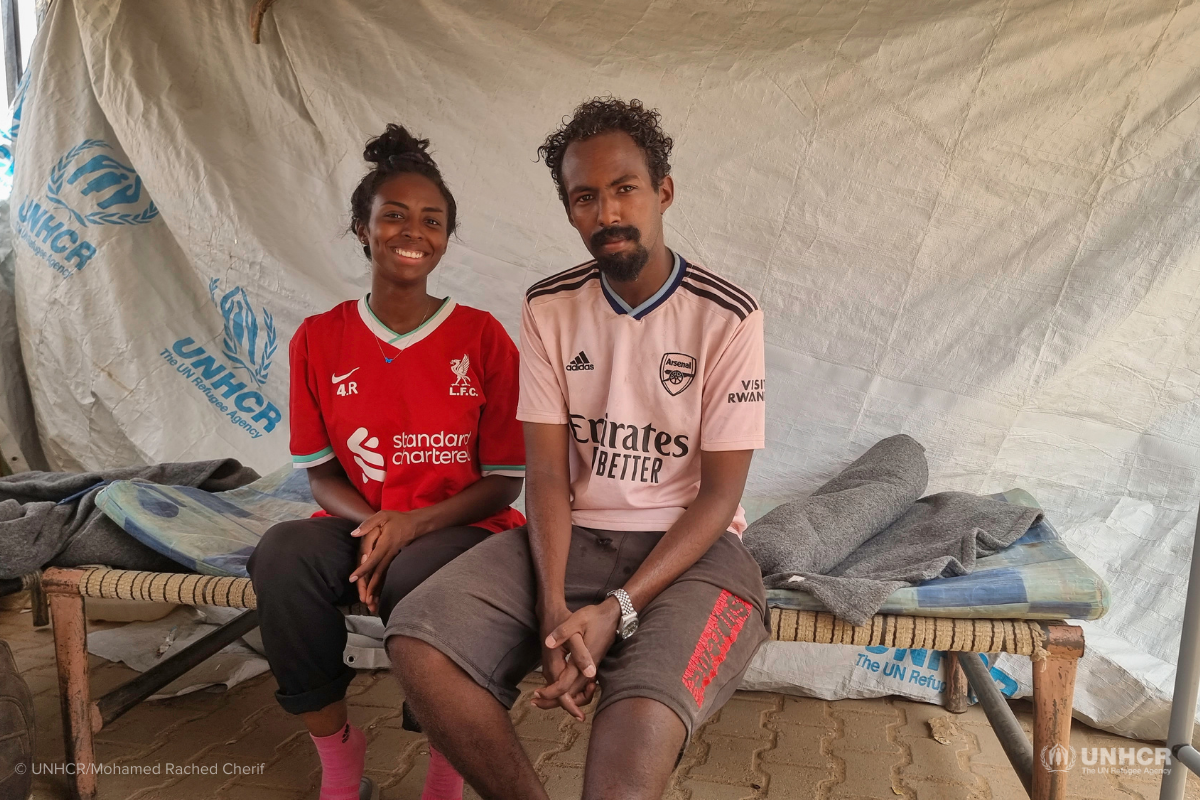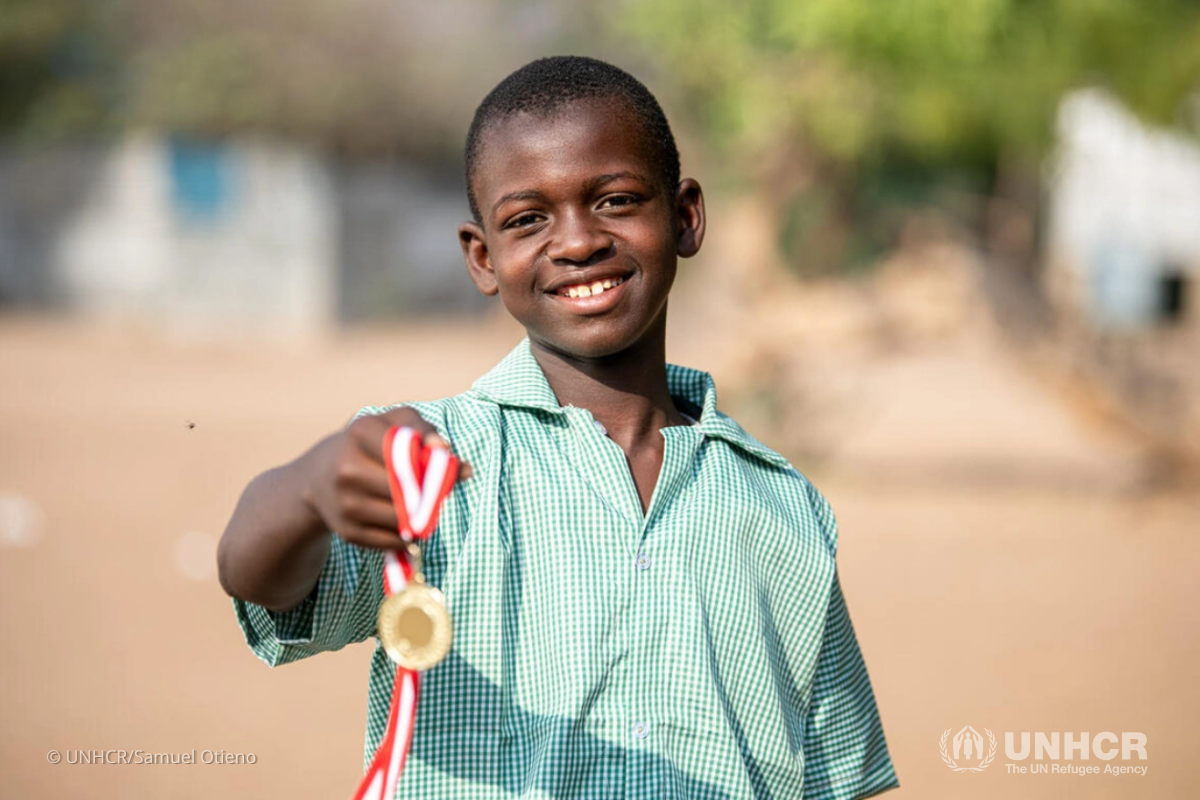How UNHCR is empowering women and communities to help end gender-based violence
November 25th marks the International Day for the Elimination of Violence against Women and the beginning of the UN’s 16 Days Against Gender-Based Violence. These observances aim to raise awareness about the threat of gender-based violence (GBV) and particularly how women in vulnerable situations, such as displacement, can be at even higher risk of experiencing GBV.
It’s estimated that one in three women will experience GBV in their lifetime, and this number is significantly higher for women and girls who have been forced to flee their homes. However, gender-based violence is preventable, and UNHCR, the UN Refugee Agency, is actively working in countries around the world to help protect women and develop programs that allow victims of GBV to access the necessary resources and services they need.
Today, on the International Day for the Elimination of Violence against Women, check out these three UNHCR-supported programs that are helping empower displaced women and girls, allowing them to build a safer community for all.
Casa María Amor - Ecuador
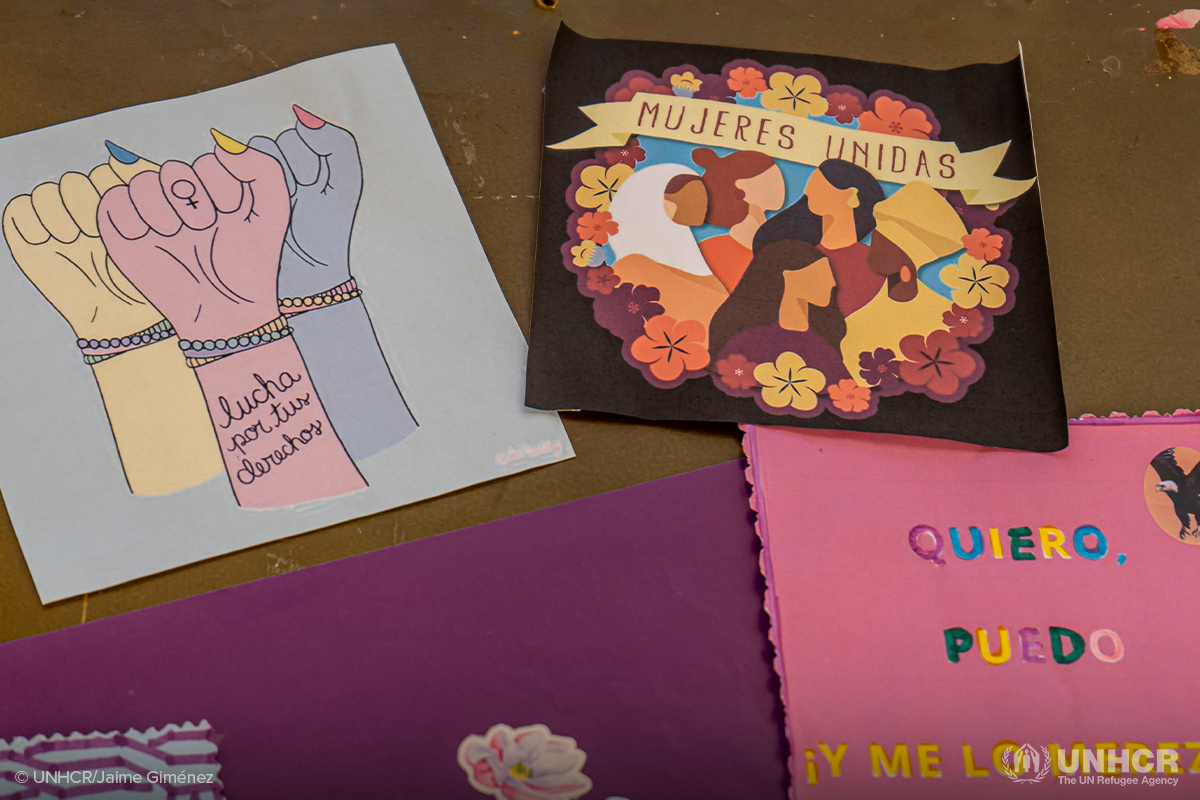
Ecuador hosts one of the largest populations of displaced people in Latin America, with hundreds of people arriving every month from Venezuela and Colombia. Due to the large number of people arriving daily, UNHCR’s work on the ground in Ecuador is essential to prevent GBV for those on their journeys to safety.
In Cuenca, one of the largest refugee-hosting cities in Ecuador, Casa María Amor provides a haven for women and children who have experienced GBV. The UNHCR-supported shelter offers a safe place to live, food, psychological care and opportunities to participate in community activities, such as gardening and raising farm animals. The shelter is open to both displaced families and members of the local community, creating a space where women and children can heal and thrive.
Community-based Protection Network - Sudan
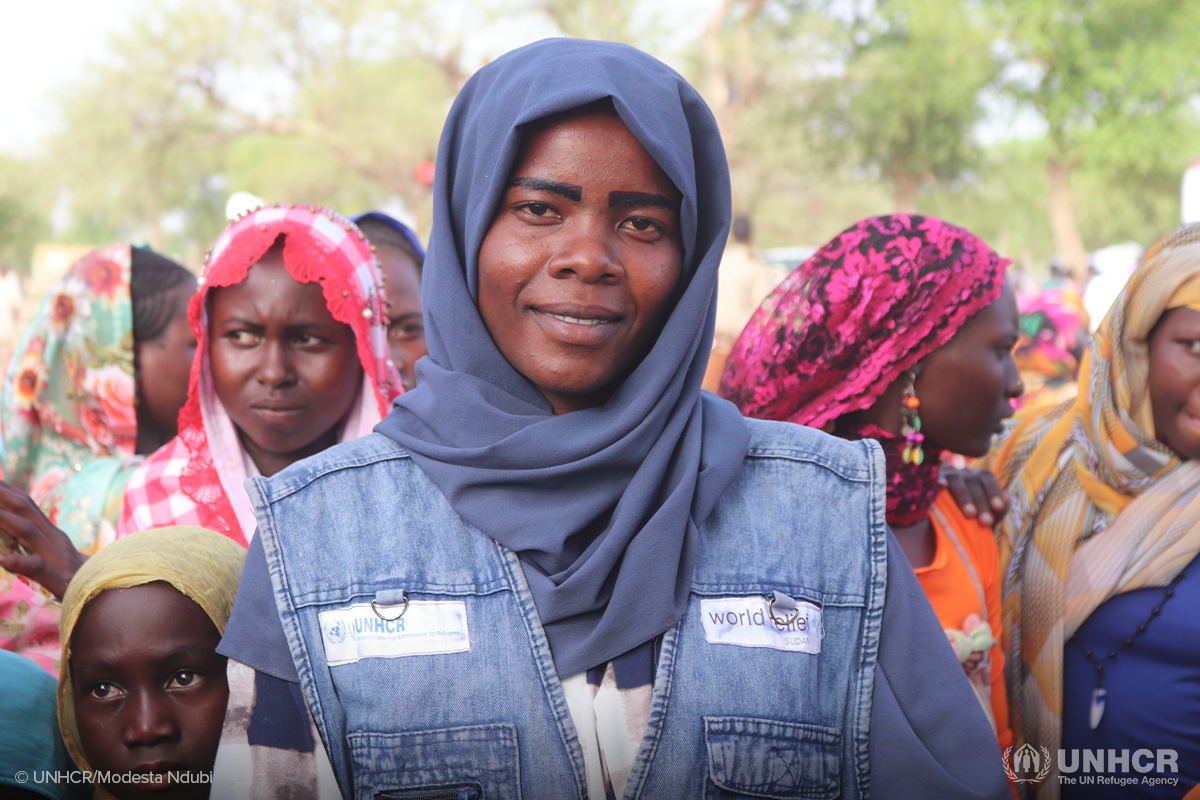
Madina is a refugee returnee from Chad and a member of the Community-based Protection Network in Central Darfur. She is also part of the Peace and Reconciliation Committee, which is a group of individuals trained by UNHCR protection partner, World Relief, on conflict resolution, GBV awareness and human rights.
“I was selected by the community because I have previously worked as a community volunteer and the community knows me because I am active. I am among the first women to be part of a committee that was previously male dominated. I gained a lot of knowledge from the trainings.”
The village she works in, Abu Jaradil, is a community for refugee and internally displaced returnees. In her role, Madina educates returnees about GBV and human rights, helps promote social cohesion for returnees and locals and ensures that basic facilities and infrastructure are in place for the community.
Casa Mariorei - Moldova
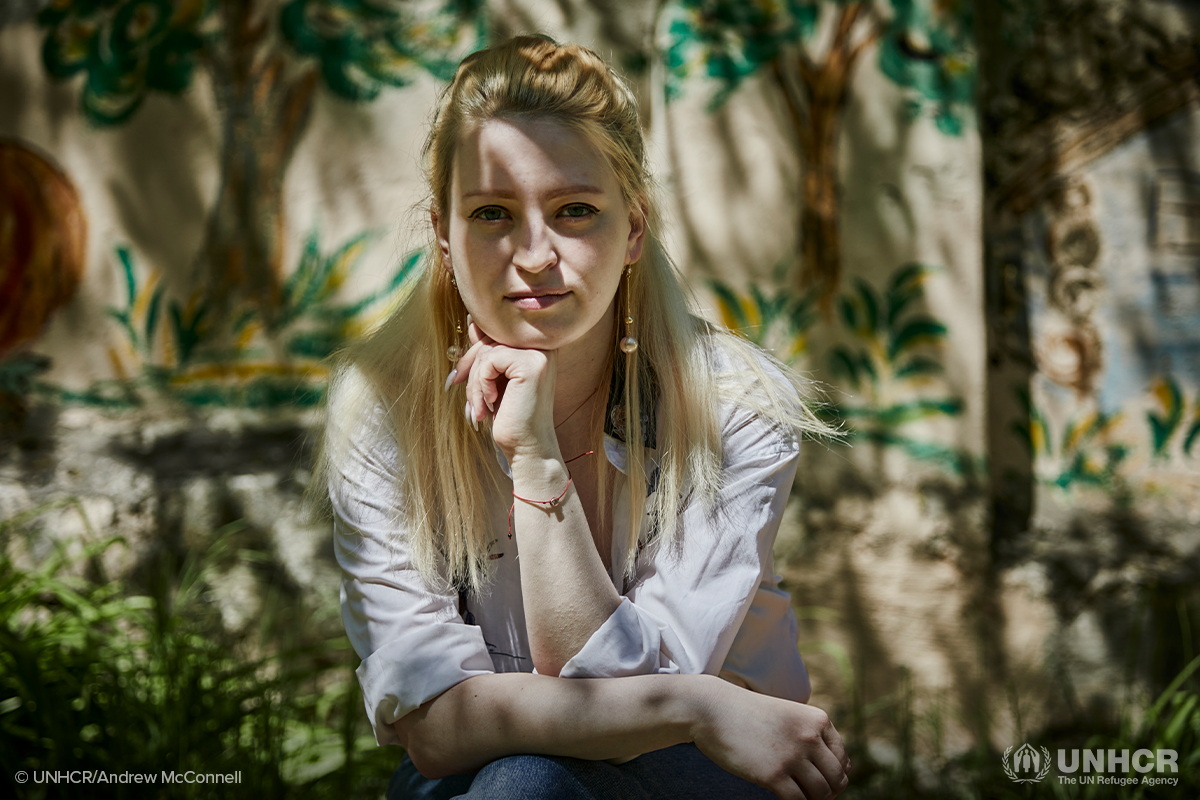
Since the mass exodus of Ukrainian refugees in late February, many have found refuge in neighboring countries like Moldova. For Vita, finding shelter at Casa Mariorei was a blessing for her and her children.
“We were immediately shown where we could live, that it would be safe and comfortable here, and that we could temporarily stay in peace and tranquility.”
Casa Mariorei offers shelter to survivors of GBV and has had its doors open to Ukrainian mothers and their children since the start of the conflict. UNHCR works closely with the shelter to monitor the risks of GBV and provide psychological, social and legal services to refugee families. Many women in the shelter, like Vita, have found a sense of togetherness amongst the Ukrainian and Moldovan women at Casa Mariorei. This supportive environment allows women and children to heal and look towards the future — planning for what comes next.
How you can help…
Gender-based violence is preventable. Your support allows UNHCR to continue supporting shelters like Casa Mariorei, and programs like the Peace and Reconciliation Committee, which help educate displaced people about GBV and offer services for survivors. By becoming a monthly donor, you can ensure that these programs continue, and that more women and children can live in safety.
